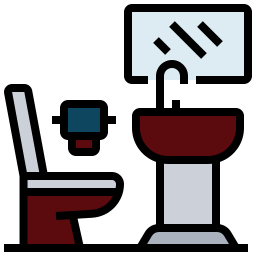Finding an excellent trusted manufacturer in China is complicated because, before making a definitive choice, you have to do a lot of research about it and put it to the test to know everything about his / her work in this article we will tell you everything you need to do to find a great and trusted manufacturer that is according to your needs.
DocShipper Alert
DocShipper ,Your complete China sourcing solution!
🌐 In-depth expertise of the Chinese market
🔍 Thorough verification of suppliers
📦 Efficient international logistics management
✅ Rigorous quality control
Trust DocShipper to support you at every stage of your China sourcing process. We ensure that your products meet the highest quality standards and are delivered on time. Save time, money, and hassle by choosing DocShipper as your reliable partner.
Contact us!
Where can I find a manufacturer in China?
💡 ATTENTION: 78% of importers waste thousands by only searching on Alibaba. The most reliable manufacturers often avoid B2B platforms due to 15-30% commission fees. Our recent client found his top supplier at the Yiwu Market after 8 failed Alibaba orders. Let’s now explore how to avoid costly scams when searching for reliable Chinese suppliers.
Finding an excellent trusted manufacturer in China is complicated because, before making a definitive choice, you have to do a lot of research about it and put it to the test to know everything about his / her work in this article we will tell you everything you need to do to find a great and trusted manufacturer that is according to your needs.


Recommendations and References: Ask for recommendations from other contractors or industry professionals who have worked with Chinese manufacturers. References can be a valuable source for finding reliable manufacturers.

However, it is worth mentioning that if you are an authenticated buyer on Alibaba, you will have access to a more detailed manufacturer directory. This will allow you to search for experienced manufacturers and view their business history, which can help you make more informed decisions.



Sourcing Services: Engaging specialized sourcing services can help you find manufacturers in China. These services often have established contacts with manufacturers and can assist you in the selection and verification process.
How to avoid scams when looking for a Chinese supplier?
⚠️ IMPORTANT: 65% of first-time importers lose their initial $5,000-10,000 deposit to verification scams. In March 2024, we documented 37 cases where “verified” suppliers disappeared after receiving payment. Factory process verification is your next critical step to ensure reliability beyond basic credentials.
When it comes to finding a Chinese supplier for your business needs, preventing scams and fraud is a major concern. With China being one of the largest manufacturing bases in the world, it is crucial to take steps to avoid the potential risks associated with finding a Chinese supplier.
6 things to do to avoid getting scammed
To reduce the risk of fraud when searching for a Chinese supplier, here are some steps to take:
According to the World Bank, the factory audit pass rate in China stabilized around 65% in 2024, highlighting the importance of thorough supplier verification. By taking these precautions and conducting thorough checks, you increase your chances of finding a reliable Chinese supplier and reduce the risk of scams or fraud.
What should be done once a potential supplier has been found?
Here are the steps to follow once you’ve found a potential supplier:
Once you’ve identified a potential supplier, take the time to check their legitimacy and reputation. Do some thorough online research, check out reviews from previous customers, and make sure it’s well-established and reliable.
Make initial contact with the supplier to discuss your needs and assess their responsiveness and communication. .
During your exchange with the supplier, ask them specific questions to better understand how they work and whether they meet your needs.
When communicating with the supplier by phone or video, pay attention to non-verbal cues. Their tone of voice, facial expressions and gestures can give you clues about their intentions and reliability. If possible, ask someone you trust to help you evaluate non-verbal language.
Avoid relying solely on written messages or e-mails, especially if the supplier insists on communicating only in this way. Telephone conversations help you to understand the supplier better, and to detect any lies or uncertainties. For a better understanding, it’s best to talk to the supplier verbally.
By following these steps, you’ll be able to assess the potential supplier more thoroughly and make an informed decision about whether to continue working with them or look for other options. It’s essential to understand the supplier before entering into an agreement, to avoid future problems and to ensure a solid professional relationship.
What products are you aiming to source or manufacture?
We’ll get you access to the world’s best manufacturers, securing prices that beat your local wholesalers.
Price comparison When searching for manufacturers in China, understanding the actual cost advantage is crucial for making informed sourcing decisions.
- Compare quotes from multiple Chinese suppliers against local options
- Factor in shipping costs, import duties, and quality control expenses
- Consider MOQ (Minimum Order Quantity) requirements
- Evaluate total landed cost rather than just unit price
According to WTO (07/2021), manufacturing costs in China remain 10-20% lower than in most developed economies despite rising labor costs. DocShipper recommends requesting detailed quotations that include all potential fees.
What questions should I ask the supplier?
Here are some specific questions you need to ask your sales and marketing staff to get as much information as possible and important:
-What are the surname and origins of the owner and the work he did before starting the current company? (This will allow you to understand the owner’s professionalism and his experience in this area).
-How many employees do you have in total?
-What is the amount of sales on the domestic and export markets?
-What is your main product line?
-What are your main operations in the workshops?
-What are the entirely homemade products? Which products are half made by you and the other half finished by other suppliers? What are the fully subcontracted products?
-What is the percentage of production in your factory of the products I want?
-Has the product I chose in your showroom / stand already been made for some other customer?
What are the supplier’s documents to check?
To verify a supplier’s documents and ensure their reliability, here are the elements to consider:

Verification documents When finding manufacturers in China, requesting and analyzing the right documentation helps confirm legitimacy and capabilities.
- Business License (营业执照) – Verify legal registration and business scope
- ISO/Quality Certifications – Confirm quality management systems
- Export License – Ensure they can legally export products within an import/export business
- Bank Account Certificate – Verify official business banking details
Consider using the EU Safety Gate to check if a manufacturer has had product safety notifications. Legitimate manufacturers will readily provide these documents, while hesitation may indicate potential issues.
What is a factory audit (due diligence)?
A factory audit is a comprehensive assessment or examination conducted to evaluate the operations, processes, and compliance of a manufacturing facility or factory. The purpose of a factory audit is to ensure that the factory meets certain standards, specifications, or requirements set by a company, regulatory bodies, or industry standards.
Factory audits are typically performed by qualified auditors who are knowledgeable about manufacturing processes and standards. They may be internal auditors employed by the company or external auditors hired from independent auditing firms.
During a factory audit, various aspects of the factory are assessed, which may include:
Based on the findings of the audit, a report is generated that outlines the strengths, weaknesses, and areas for improvement identified during the assessment. This report helps the company or organization make informed decisions about their relationship with the factory, supplier selection, and ongoing quality control measures. It also serves as a tool to monitor and improve factory performance over time.
At Docshipper, we understand the importance of a comprehensive audit report in evaluating suppliers and ensuring quality control. As a leading provider of supply chain solutions, we offer specialized auditing services tailored to the specific needs of our clients. Our experienced team conducts thorough on-site assessments, examining various aspects such as social compliance, factory processes, system audits, and more.
Audit types Comprehensive factory audits are essential when finding manufacturers in China to ensure they meet international standards and your specific requirements.
| Audit Type | What It Evaluates |
| Quality Management | Production processes, quality control systems |
| Social Compliance | Working conditions, labor practices, ethics |
| Environmental | Waste management, emissions, sustainability |
According to UNCTAD (03/2022), 83% of global importers now require some form of compliance certification from manufacturers.
Why do you have to choose to do due diligence?
Before starting to work with a new supplier, you must choose to do due diligence to avoid being duped by a supplier who misrepresents information about their company and by scammers.
What type of factory should due diligence be done on?
Due diligence can be done to all types of factories, therefore small, medium, and large, of potential suppliers with whom you would like to collaborate to develop products with them.
Strategic partnership assessment When finding manufacturers in China for long-term collaboration, evaluate both their production capabilities and their potential as development partners.
| Partnership Level | Key Evaluation Points |
| Basic Production | Manufacturing quality, pricing, lead times |
| Development Partner | R&D capabilities, innovation history, IP practices |
According to International Trade Centre (06/2020), companies with strong manufacturing partnerships recovered 20% faster from supply chain disruptions. Consider starting with smaller projects to test collaboration potential.
When should due diligence be done?
Due diligence must be done before requesting samples and orders and after submitting the Request for Quote (RFQ) information.
What should be done if, after investigation, the potential supplier is not suitable?
If after the investigation, the potential supplier is not suitable, you must have a ready-made list of other potential suppliers who may be suitable for you, your requests, and your needs. Among these, you choose one to be able to do another due diligence.
Alternative supplier strategy When a potential Chinese manufacturer fails your due diligence process, having a structured approach to finding alternatives helps maintain momentum in your sourcing project.
- Document specific reasons for rejection to refine future searches
- Expand search parameters to different regions within China
- Consider tier-two manufacturers with growth potential
- Explore industry-specific trade shows for direct connections
Maintain a pipeline of pre-vetted backup suppliers for critical components. This approach not only provides alternatives when primary options fail verification but also creates competitive leverage during negotiations with your eventual manufacturing partner.
Do I have to pay to have due diligence done on a Chinese company?
Yes, to have the due diligence done on a Chinese company you have to pay the specialists because they will do an investigation and then a complete check on the background and all the information on the supplier and in addition, they will give you a report with everything you want, and you need to know about potential supplier, and you will have it in just 5 working days.
DocShipper Advice
Why Choose DocShipper for Logistics?
Choose Docshipper as your trusted partner for auditing services, and let us help you make informed decisions based on comprehensive assessment reports. For more information, please contact us
Evaluating a Chinese factory when manufacturing a new product
ℹ️ INFORMATION: Manufacturing specifications are misinterpreted in 83% of new product developments with Chinese factories. DocShipper’s bilingual engineering team provides technical translation services = 92% reduction in production errors. Ready to explore how to evaluate standard products with the same precision?
When it comes to developing a new product, the choice of supplier is crucial. As companies seek to optimize profitability and accelerate production, many are turning to Chinese suppliers. China has become a preferred destination due to its abundant labor force, competitive costs, and ability to respond to high production volumes. In 2024, China’s manufacturing sector grew by 5.1%, driven by strong exports in technology and industrial products
However, evaluating a Chinese supplier requires a strategic approach and in-depth analysis to ensure product quality, on-time delivery, and a reliable business relationship.
What should I evaluate if I want to develop a new product?
If you want to develop a new product in the best way with a Chinese manufacturer you have to evaluate its engineering capacity and this you can only do if, the manufacturer, evaluate and know the CAD compatibility, the design capacity, the structures, and the research capabilities and development in them, prototype construction capability and initial prototype testing capability.
Product development evaluation When finding manufacturers in China for new product development, assessing their technical capabilities and innovation resources is critical for successful collaboration.
- Engineering team expertise and qualifications
- Design software and prototyping technologies available
- Previous experience with similar product categories
- Intellectual property protection practices
Request samples of previous development projects and arrange video calls with their technical team. The most suitable manufacturing partners will demonstrate both technical knowledge and willingness to solve design challenges rather than simply executing specifications.
What is CAD Compatibility?
CAD Compatibility stands for Compatibility with the Assisted Design and is performed by the computer Software and is one of the important factors to consider when you are researching a new manufacturer, and it is important to avoid possible design errors during production due to the inability to access or read the file on the manufacturer’s computer.
Why is it important to check design capacity?
The manufacturer’s internal design ability is not just a “design ability” but it is real engineering, and it is important to check it because thanks to it, you are sure that the design of your product will be excellent and of excellent quality.
Precisely, you have to check certain skills which are:
Mechanical Engineering which is the ability to design parts, such as plastic packaging, metal structural parts, and functional parts (such as drive shafts and support shafts). In addition to having these capabilities, the design team must also know how to calculate the bending moment and the torsional stress limit in order to know, control, and verify the resistance of the design.
Electrical Engineering which are the skills and knowledge necessary to design and are important for example for drives in which the system must calculate the torque of the electric motor and the speed required to drive the pulley at a certain speed suitable for lifting a certain engine weight.
Electronic Engineering means having the ability to design highly complex PCB circuits, which should include the use of IC processors, miniaturized BGA components, and other complex surface mount devices.
Software engineering is important, and you need to make sure that the software engineering team is capable of coding and delivering what you specify from the point of view of the output function.
Should research and development facilities and capacities also be checked?
Yes, it is also necessary to check the R&D facilities and capacities because in some cases, the supplier has to collaborate with you in the research and development (R&D) of the products you would like, and for this, it would be necessary to use the specific knowledge that the industry has. For example, you could collaborate on research to improve and make a cell phone case more resistant so that it can be hit by a car without damaging the phone.
You could take care of the design of the products but to test and, in case they do not go well, modify the quality of them, you need a controlled environment in which they help you to advance the project to the best and bring it closer to production and if the supplier has dedicated R&D facilities and in-house capabilities, this could bring huge benefits, especially if you don’t have such facilities.
Evaluating a Chinese supplier for a standard product
Looking for a Reliable Shipping & Sourcing Partner?


When it comes to sourcing a standard product, evaluating and selecting the right supplier is of utmost importance. In today’s global marketplace, many businesses turn to Chinese suppliers due to their competitive pricing, manufacturing capabilities, and expansive supply networks. However, effectively evaluating a Chinese supplier for a standard product requires a systematic approach and careful consideration of various factors
What should I evaluate if I want to buy a standard product?
If you want to buy a standard product, from a potential supplier that you have verified, one thing to do is to go to China and check for yourself if the factory is suitable for your company, and if it is well-managed and well-organized.
We will explain how to best evaluate these aspects.
How can I know if the supplier can suit the needs of my company?
To evaluate whether the supplier is suitable for your company or not, you must take into consideration various factors which are:
-The importance of your orders to evaluate if it represents the percentage suitable for their abilities
-The main objective of the factory is to be able to understand if they work on large volume and low-quality orders or vice versa and therefore if they work on small volume and excellent quality orders
-The time of year when they work the most to understand if they will be busy or not during the time you want to place your order
-Their organization to understand if in case there will be no production manager or chief engineer, there will be a mature organization already organized or will put everything aside in their absence, and you need to know this to be sure that the production of your product goes and continues in the best way without interruptions.
-How much and how the person you are in contact with works, you need to understand if he/she is capable of managing his/her job and if he/she is already very busy or not
-How much your intellectual property is respected, and this is needed to understand how much the seller wants to sell your products.
How can I know if the factory is well managed?
To avoid problems due to bad factory management, we list the aspects you need to pay attention to and avoid in order to avoid problems.
The small signs that you need to pay attention to and with which you will understand that you have to choose another supplier are:
-The boss is not interested in the production plan and spends most of his time in his office drinking tea and chatting with his friends
-Managers don’t know processes and therefore don’t know how to give you answers to specific questions
-Lack of staff training and problems are not solved because production supervisors are busy sending emails from their offices
-The presence of many people or small departments or individual offices. These aspects make communication difficult and corruption is easier
-The lack of metrics shown on the walls, equipment, TV screens, etc. which are usually used for the management of operations and if they are not there it means that there is a lack of visual effort of management, and it can also be understood that most of the people who work, do not know what they are doing exactly
-The payment of the production operators is based on the pieces created and not on the hours worked, this is not an excellent method of payment for having quality products because the operators will be interested more in the quantity than in the quality of the products.
How do I evaluate if the factory is well organized or not?

-The production floor is clean to ensure that your products are great
-The workers’ toilets are clean and therefore have good hygiene
-They have new equipment that they have recently invested in
-The equipment with which the production takes place is new and expensive or old and shabby.
-Workers have the right equipment to protect themselves when they do dangerous operations
-The behavior of operators changes when you analyze their work and therefore if they are afraid and/or nervous or if they are calm in carrying out their task. If their behavior changes, something is wrong
-The age of the workers is suitable for the job they are doing
-Production is organized in isolated islands and if there is a lot of work going on in the workshop. Both things might not be suitable for the creation of a great product because if everyone works separately and there is a lot of work, it means that your product will be created by several different people who do not have a direct comparison between them and therefore do not they have a common and precise idea of how the result should be
-They perform other actions besides packaging
They serve other customers in the countries you sell to and to check you have to see the labels on the packaging line.
Importance of on-site factory quality audit
💡 ATTENTION: 91% of quality issues originate from undisclosed subcontracting, not factory capabilities. Top manufacturers outsource 40-60% of components while claiming “in-house production.” A 2024 electronics client saved $43,000 by identifying subcontracted circuit boards before mass production. Now let’s examine the critical social compliance factors beyond quality.
The importance of on-site factory quality audit
On-site factory quality audit on site is very important to avoid problems in production and therefore it is better to work with a manufacturer who places great importance on the quality of the final products. In 2024, value-added equipment manufacturing increased by 7.7% year-on-year, reflecting ongoing improvements in production standards.
What are the reasons why only a few Chinese factories have a solid quality system?
Only a few Chinese factories have a solid quality system for two specific reasons.
The first reason is because many factory owners don’t have a long-term perspective, in fact, their perspective is very short, but slowly, most of the factory owners are changing their way of thinking and focusing more on the long-term relationship. Term with their customers, keeping them thanks to the good quality of their products. This change is great for both producers because they earn more and are more successful than owners with a short-term perspective, and is great for importers as they are confident that the producers they work with consider the quality of the products.
The second reason is that most Chinese factory managers do not have an advanced education degree and this means that only the few who do have an idea of systemic thinking and therefore make sure they find the problem and understand what. Is the cause of the problem and fix it at the source.
But as only a few factory managers know and implement this process to solve the problem it is difficult to ensure good quality.
How important are ISO 9001 certifications in China?
ISO 9001 certifications are not very important in China because you cannot trust them and for this reason the professionals of the sector in China do not take it into consideration.

Problems during registration and therefore the reasons why the ISO 9001 certificate is not taken into consideration are the following:
Many registrars only think about earning and therefore are very permissive and certify anyone, precisely, for this reason, all those who have verified are their customers.
The consultants for passing the certification are corrupt and therefore many manufacturers possess the ISO 9001 certificate but without doing any work on the fundamental principles of their organization.
-Third-party auditors get bribed with a bribe and therefore don’t do their job by pretending they’ve seen nothing wrong.
DocShipper info
How Does DocShipper Ensure Quality?
Ensure the quality of your products with DocShipper’s quality control service! 🌟✅The quality of your products is crucial to customer satisfaction and your company’s reputation. Leave nothing to chance and trust DocShipper to ensure rigorous quality control at every stage of your production process. 🛠️🔎. For more information, contact us.
What do you need to check or have checked during a factory quality audit?

The most important things that you have to check or have checked during a quality audit in the factory of the potential manufacturer that will have an impact on your business and the quality of your products, and therefore you need to know if:
-The necessary check is made that Chinese manufacturers should make on deliveries from their suppliers in order to guarantee and make sure that the materials are of excellent quality.
-They have the appropriate equipment to carry out the necessary tests of a product so that they can ensure the proper functioning and safety of their products.
-The materials and components, which are used to create the product, are stored correctly and adequately.
-There are non-compliant materials present that should not be in the factory.
-Production operators know, understand and correctly follow the procedures they need to do, and you need to understand if they are trained or not to do their job at best.
-The production supervisors or the managers in point are trained and specialized in some complicated and important steps necessary to make the best product you want.
-The factory is willing to do a pilot run before producing your fully customized product.
On-site social compliance audit
In today’s globalized business environment, ensuring ethical and socially responsible practices within supply chains has become a top priority for companies across industries. As a result, conducting on-site social compliance audits has become an essential tool for assessing and monitoring the social and ethical performance of suppliers and manufacturing facilities.
When is it necessary to check the social compliance audit on-site?
After the background checks on the potential supplier and after the quality audit checks at the factory, you must check the social compliance audit on site, also checking the social and environmental policies of the factory only if your client requests you to work with of responsible producers, if negative news about your producer comes out, your name must be tarnished and if you promise your customers certain products (for example cruelty-free farms and slaughterhouses), your brand must respect it.
In the continuation of the article, we will usually tell you what is checked, the impact on workers and which issues to consider and which not.
What should be checked in an on-site social compliance audit?

-The cooperation of the factory management with the auditor and whether the local laws are respected in the factory, checking the minimum wage, employment contracts, mandatory performance, etc.
-The type of work must also be voluntary on the part of the minors and therefore the workers must not perform forced labor, must not have excessive discipline, etc.
-The working hours, the maximum number of overtime hours, breaks, etc. must respect the number of hours allowed by local law and must be properly compensated.
The health and safety of workers in the factory is very important and therefore you need to check:
For factory fire protection:
-First of all, if there are any fire hazards
-If they have equipment in the factory that is suitable for putting out a fire
-If there are escape routes with sufficient space and with an evacuation plan available
-If employees are trained and regularly do fire drills
-For personal protection:
-If the employees have adequate protection suitable for the work they perform
-If there are other sources of risk in the factory
You can also check many other important aspects and that you consider them to be such as for example the importance that the factory gives to respecting the environment, for example knowing that the water treated before release is waste.
The impact that social compliance audits make on workers
In some large factories that work primarily for US / EU markets, the impact that social compliance audits make on workers is small.
But you must also take into account that in China, in the last 2 years, the conditions of workers in Chinese production have improved because the number of jobs available is higher than the job offer and that is why employers try in every way to attract workers.
And you have to be careful because the social control system of most retailers and owners does not work as it should and is not fair because the activities are assigned by the buyers based on the lowest price, the supply chain must not present any risk. and it must be guaranteed by the compliance department and finally why factories create false documents and train their employees to lie to better pass the control over social compliance audits.
DocShipper Alert
How Can DocShipper Simplify Sourcing?
In order not to waste time and be sure to choose a good manufacturer, follow our advice and if you don’t know where to start, contact DocShipper and our experts will help you.
What are the real problems that a social auditor needs to check in Chinese factories?
The importance of on-site factory quality audit
– For small companies, social auditors should focus more on current practices in China rather than international standards. Small companies are free to decide what they think is right.
– Social auditors need to distinguish real problems from less important ones. Some issues deserve special attention during the audit, while others may be overlooked.
– Living conditions such as dormitories and canteens are not important points to check, as Chinese workers have the freedom to choose where to work.
– Child labor and forced labor are not widespread in China, with the notable exception of prison labor. It is advisable not to waste time examining this problem.
– Social auditors should focus on workers’ health, in particular by checking whether personal protective equipment is being used correctly, whether there are any fire hazards, and whether preventive measures are being taken seriously.
– Chinese employers don’t care about the environment, unless customers urge them to do so. Social auditors can make employers aware of the benefits of environmentally-friendly practices.
– Employees’ rights are protected under Chinese law, but social auditors should not focus excessively on verifying these rights.
– Social auditors can waste time looking for contradictions between labor and factory management, but this should not be a priority.
– Legal limits on employee working hours are not a problem in China, as both piece-rate workers and factory owners are happy with long working hours. However, this can affect product quality.
– Social auditors can sanction factories that abuse legal working hours by making employees work all night without days off for a month. On the other hand, they can award extra points to producers who pay their employees according to their output.
DocShipper Advice
Most of the companies that make technical and/or industrial purchases from China have a better knowledge of the systems and processes of the factory.
Factory process check and system audit
⚠️ IMPORTANT: 72% of importers overpay by 30-45% by negotiating incorrectly with Chinese factories. In February 2024, a furniture importer reduced costs by $27,000 simply by restructuring payment terms from 30/70 to 20/30/50. Master these negotiation techniques to secure the best possible manufacturing partnership.
In today’s complex manufacturing landscape, ensuring efficient and effective factory processes is vital for businesses to maintain high-quality production, meet customer demands, and stay competitive.
What are the things not to ignore during a factory process check and system audit?
Control over factory processes and system audits is an important element to ensure that the factory is trusted and that it guarantees high safety to do this you have to analyze elements, usually ignored but useful for evaluating the maturity of systems and factory processes. In May 2025, China’s industrial exports grew by 0.6%, showing resilience despite global market uncertainties.
These elements are the training, the NPI (New Product Introduction), the management systems, the CI (Continuous improvement), the equipment maintenance, the process controls and error correction, the specific checkpoints of the process, and the compression molding process.
What do you need to find out about the elements needed for complete control of factory processes and system audits?
To achieve complete control of factory processes and system audits, several elements need to be considered. These include evaluating employee training systems and performance evaluations, ensuring the existence of a formal New Product Introduction (NPI) process, verifying product control plans and readiness for production, understanding factory management systems and their focus on quality and productivity, assessing the effectiveness of the continuous improvement (CI) system, maintaining equipment and following maintenance plans, implementing process controls and error correction procedures, conducting specific checkpoints and audits, evaluating supply chain systems for timely delivery, and verifying the correct execution of the compression molding process. These elements contribute to comprehensive control and effective audits of factory operations.
How to negotiate the manufacturer’s quote
Negotiating the manufacturer’s quote is a critical aspect of securing favorable pricing and terms when sourcing products or components. Effective negotiation skills can help businesses achieve cost savings, improve profit margins, and build strong supplier relationships.
What should you do to get a quote on a supplier’s price?
During negotiations, prioritize factors beyond cost, such as product quality and customization options. Approach the manufacturer as if building a working relationship or friendship. Be cautious of their reaction to your desired price – quick acceptance may indicate a lack of consideration for your specific requirements, while active engagement in finding solutions shows genuine interest and commitment.
In summary, be cautious, request quotes from multiple suppliers, prioritize factors beyond cost, build a relationship, and pay attention to the manufacturer’s responsiveness and willingness to meet your needs.
Tips on how to communicate with a Chinese manufacturer
By following these communication strategies and maintaining clarity in your interactions, you can establish effective communication channels with your Chinese supplier, mitigate misunderstandings, and foster a productive working relationship.
Signing a contract with a Chinese supplier
When considering entering into a business relationship with a Chinese supplier, signing a contract is a crucial step to ensure clarity, protect interests, and establish a solid foundation for the partnership.
Signing a contract with a Chinese supplier

What are the reasons to choose DocShipper?
To save time
You can anticipate to devote a significant amount of time and effort to locating your contractor. With Docshipper, you save time to devote to other business activities. Docshipper has connections with reliable suppliers in provinces where you can send and receive an order in less than half the time it would take you to source on your own. An experienced company like ours can save you time and money for your business endeavors. You can contact us to get a quote.
To make a smart choice
Taking orders off the internet can be risky even if the vendor seems to be serious, as we saw before. Finding quality qualifying suppliers is a multistep procedure. You should know what to look for, and the easiest way to do so is to get in touch with already established companies. DocShipper issues RFIs, verifies that suppliers have the required certificates and permits, conducts audits, and does any other inspections you request.
To get the best quality
Profit margins are slim for Chinese vendors. To stay successful, they take multiple orders and pay special attention to large orders and long-term customers. It can sometimes mean a reduced focus on smaller purchases or new customers. DocShipper assures a constant service to every customer we choose to take on.
To keep tabs on your order
It’s possible that your supplier will prioritize large orders and ignore small purchases that don’t have a significant impact on their bottom line. This raises the possibility of missing delivery deadlines. A company may be shut down due to a labor dispute or government decree. Despite the fact that supplies are disrupted, Chinese suppliers may take time to inform you. With DocShipper you will know what’s going on and how different events can influence your order.
DocShipper Advice
When working with Chinese suppliers, it’s important to be vigilant. Some companies might try to take advantage of you, especially if they notice that you’re a new importer entering the market with a complex new product.
They may even try to steal your idea. So it’s essential to take every precaution before divulging confidential information to an unknown supplier. In this context, Docshipper can help you avoid these problems by carrying out thorough checks and helping you find reliable, trusted suppliers. Contact us for more information.
To avoid getting held up at customs
Customs inspections are conducted to ensure that the nature, origin, condition, amount, and value of items leaving the nation correspond to the information provided on the declaration form. Inspectors pick shipments at random for manual examination, looking at the packing, transit marks, and other visible signs. They may remove the packing to investigate the items if something doesn’t add up. Sourcing agents handle both the final goods inspection and customs clearance, guaranteeing that your cargo does not be delayed.
Knowing that a trusted agent with boots-on-the-ground is staying in touch with you, DocShipper will be a hassle-free experience on your behalf. Your agent will keep you updated, and you can communicate any inquiries you have. This can go a long way in preventing a lack of understanding due to the language barrier and provide the visibility needed to correctly confirm anything related to your order.
Quiz: What's Your Best Strategy to Find a Reliable Chinese Manufacturer?
Question 1: What is your current experience with Chinese manufacturing?
Question 2: What is your budget for product development and sourcing?
Question 3: How important is quality control to your product?
Your Recommended Sourcing Strategy
FAQ | How to Find a Reliable Manufacturer in China? [2023 Guide]
Need Help with
Logistics or Sourcing ?
First, we secure the right products from the right suppliers at the right price by managing the sourcing process from start to finish. Then, we simplify your shipping experience - from pickup to final delivery - ensuring any product, anywhere, is delivered at highly competitive prices.


Fill the Form
Prefer email? Send us your inquiry, and we’ll get back to you as soon as possible.
Contact us





















